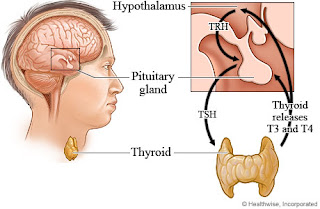Exclusive Breastfeeding
How breastfeeding benefits you and your baby
Before I start anything, I just want you all to know that this is the worlds breastfeeding week i.e ( 01 august - 07 august) Read till the end. :)
Breastfeeding protects your baby from a long list of illnesses
Breastfeeding can protect your baby from developing allergies
Breastfeeding may boost your child's intelligence
Breastfeeding may protect your child from obesity
Breastfeeding may lower your baby's risk of SIDS (sudden infant death syndrome)
Breastfeeding can reduce your stress level and your risk of postpartum depression
Breastfeeding may reduce your risk of some types of cancer.

Breast milk is best for your baby, and the benefits of breastfeeding extend well beyond basic nutrition. In addition to containing all the vitamins and nutrients your baby needs in the first six months of life, breast milk is packed with disease-fighting substances that protect your baby from illness.
Breastfeeding for the first six months although any amount of breastfeeding is beneficial and scientific studies have shown that breastfeeding is good for your health, too.
Here's a look at some of the most important benefits breastfeeding offers you and your baby.
Breastfeeding isn't always blissful, especially not at first.

One large study by the National Institute of Environmental Health Sciences showed that children who are breastfed have a 20 percent lower risk of dying between the ages of 28 days and 1 year than children who weren't breastfed, with longer breastfeeding associated with lower risk.
The main immune factor at work here is a substance called secretory immunoglobulin A (IgA) that's present in large amounts in colostrum, the first milk your body produces for your baby. (Secretory IgA is present in lower concentrations in mature breast milk.) The substance guards against invading germs by forming a protective layer on the mucous membranes in your baby's intestines, nose, and throat.
Your breast milk is specifically tailored to your baby. Your body responds to pathogens (virus and bacteria) that are in your body and makes secretory IgA that's specific to those pathogens, creating protection for your baby based on whatever you're exposed to.
Breastfeeding's protection against illness lasts beyond your baby's breastfeeding stage, too.
Studies have shown that breastfeeding can reduce a child's risk of developing certain childhood cancers antibodies in breast milk may give baby's immune system a boost..
Breastfeeding may also help children avoid a host of diseases that strike later in life, such as type 1 and type 2 diabetes, high cholesterol, and inflammatory bowel disease. In fact, preemies (premature babies) given breast milk as babies are less likely to have high blood pressure by the time they're teenagers.
For babies who aren't breastfed, researchers have documented a link between lack of breastfeeding and later development of Crohn's disease and ulcerative colitis.

Breastfeeding can protect your baby from developing allergies
Babies who are fed a formula based on cow's milk or soy tend to have more allergic reactions than breastfed babies.
researchers concluded from IQ scores and other intelligence tests that prolonged and exclusive breastfeeding significantly improves cognitive development.
Experts say that the emotional bonding that takes place during breastfeeding probably contributes to some of the brainpower benefits, but that the fatty acids in breast milk may play the biggest role.
Breastfeeding may protect your child from obesity
Pediatricians recommends breastfeeding as a way to help reduce your child's risk of becoming overweight or obese. The strongest effect is in children who were exclusively breastfed, and the longer the baby was breastfed the stronger the link.
The National Institutes of Health reviewed more than 9,000 study abstracts and concluded that women who didn't breastfeed or who stopped breastfeeding early on had a higher risk of postpartum depression.
Many women report feeling relaxed while breastfeeding. That's because nursing triggers the release of the hormone oxytocin. Numerous studies in animals and humans have found that oxytocin promotes nurturing and relaxation. (Oxytocin released while nursing also helps your uterus contract after birth, resulting in less postpartum bleeding.)
One study found that women who had high amounts of oxytocin in their system (50 percent of breastfeeding moms as opposed to 8 percent of bottle-feeding moms) had lower blood pressure after being asked to talk about a stressful personal problem.
By the way, if you're being treated for depression, you can still breastfeed your baby. Your healthcare practitioner can help you identify safe ways to treat your depression while nursing.
Breastfeeding may reduce your risk of some types of cancer
Numerous studies have found that the longer women breastfeed, the more they're protected against breast and ovarian cancer. For breast cancer, nursing for at least a year appears to have the most protective effect.
It's not entirely clear how breastfeeding helps, but it may have to do with the structural changes in breast tissue caused by breastfeeding and the fact that lactation suppresses the amount of estrogen your body produces. Researchers think the effect on ovarian cancer may be related to estrogen suppression as well.
Common myths about breastfeeding

I hope this was helpful for you all.
I BELIEVE "The best part of learning is to share what you know." I did my job now its your turn to show your love and care do share this important information with your loved ones.
- Applied Nutrition
- Fariha Tanveer (NCB III)



Comments
Post a Comment